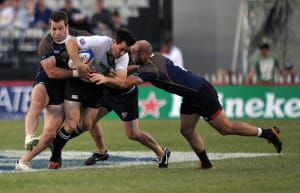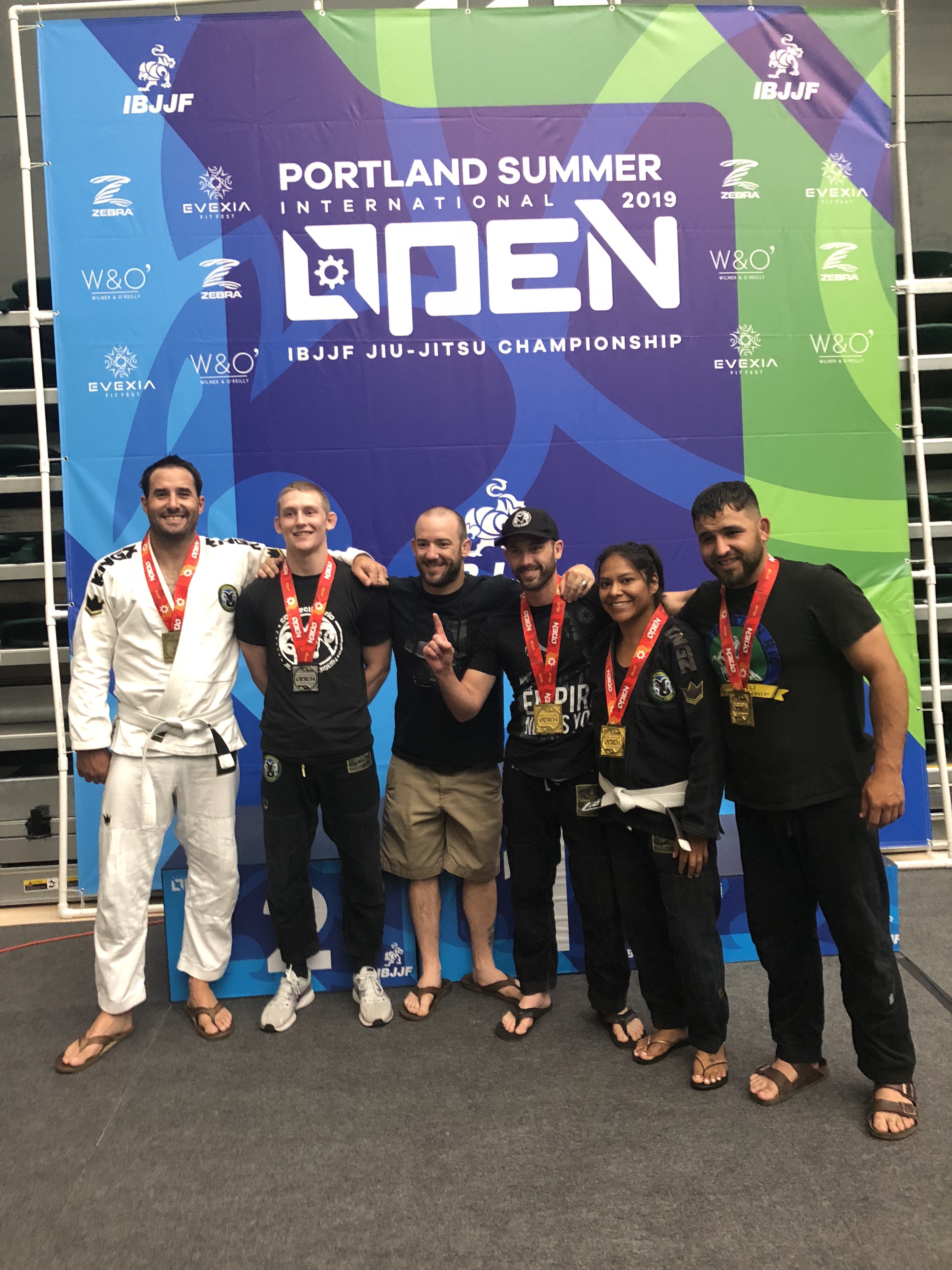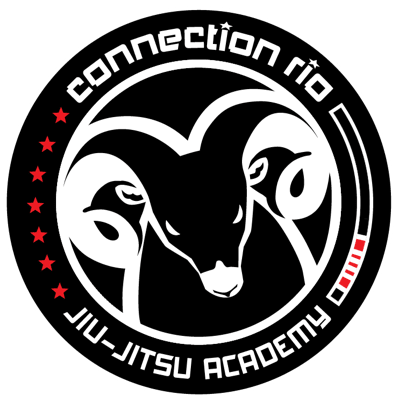
I’ll be honest - my initial motivations for trying Brazilian Jiu Jitsu were twofold: 1 - I was admittedly having a bit of an identity crisis (maybe with a splash of mid-life crisis?) and 2 - I really, really hate going to the gym. For the better part of the last 20 years a big part of my identity has been as a rugby player. Much like Brazilian Jiu-Jitsu, Rugby is more than a sport. It’s a global community, a culture, a way of life. Rugby is how I found my career, met multiple business partners, made the majority of my friends, and even how I met my wife. So, when at 38 I was forced to admit my body could no longer play the game, I didn’t exactly take it well. I was officially a has-been. After a few months of feeling sorry for myself and getting real soft around the edges, I decided to heed the advice of some friends, ignore the eyerolls from my wife, and give BJJ a whirl. I emailed the two Academies in town to see what all the fuss was all about. Professor Asche replied within minutes saying something to the effect of “come tonight! 6pm”. Everyone who practices BJJ knows exactly what happened next. I got destroyed by a bunch of incredibly nice people. At one point I found myself getting choked by my own arm if I could have breathed I would have been laughing. After class I gathered my severely bruised ego and nearly puked from over-exertion. I was hooked.
After months of training, not once did the idea of competing cross my mind. So, when Professor Asche asked me when I was going to compete I (honestly) thought he was joking. My intentions were for this to be a hobby; one with the added benefit of keeping me fit. After some gentle encouragement from him, however, the idea of competing began to grow on me. Why not see what was in the ol’ tank? Before I could talk myself out of it, I signed up for the Portland Open.
Below is an earnest attempt to portray my experience competing for the first time. Hopefully, it will give you some idea of what to expect
Training and Preparation
Once I made the commitment to compete, I felt equal parts nervous and excited. Excited by the challenge and new experience, but nervous that I wasn’t good enough to step on the mat in a competition. It turns out the fear of embarrassment can be a powerful motivator. I decided to orient my goal towards putting together a complete performance. To not sweat a position on the podium, but to apply what I’ve learned in the eight months I’d been training. I figured if I could do that, the rest would fall in place.
More than the fear of embarrassment, I felt a renewed sense of purpose. It felt good to have something to train for, a deadline, a test. I found myself getting into some familiar routines: eating well, staying hydrated, foam rolling, passing on that second pilsner at happy hour. I doubled down on trying to absorb every morsel of information from my teammates and Professor Asche. I felt like I was in college cramming for a final. There was urgency.
My final training before the tournament a teammate asked me what my plan was for the competition. Plan? I didn’t know I was supposed to have a plan. He went on to give me some advice I’ll never forget: “don’t be a weenie and pull guard...go for a high probability take down and take it from there”. Right….no guard pulling.
Unfortunately, Professor Asche couldn’t make the tournament because of family conflicts, but he called me to check in the night before and walk me through what to expect both mentally and physically. He emphasized some things to visualize, told me a few of my strengths to focus on, and mainly encouraged me to enjoy myself. The pep-talk worked. I went to bed feeling confident.
Day of the Tournament
The confidence didn’t last. I was a jittery mess all morning. Something about it felt familiar, though. After twenty years of playing rugby, the same same mix of adrenaline and excitement never failed to show up on the Saturday morning before a game. I headed over to the arena early to watch my teammates compete and hopefully learn the rules of this thing. I found our group just in time to watch Tye McCarthy cut cleanly through the poor souls in his bracket. I’ll say, there is something deeply satisfying about watching your teammate tap someone from another Academy. It feels as if you played a small part in the victory. Without a doubt, the highlight of the morning was watching it dawn on Sam Perry’s opponent’s face (while mid-air) that he was on the mat with a brown belt in judo.
To be perfectly frank, I was a nervous wreck. Despite the distraction of watching my teammates cutting through the competition like a pair of buzzsaws, I was having a really hard time curbing the adrenaline surge. Controlling adrenaline and your “fight or flight” response is an important part of being an effective rugby player. There is a moment in every rugby game where things go completely sideways, and it’s often the players/teams who best control their emotions while in the fray that tend to prevail. I’ve always considered my ability to stay cool a competitive advantage. But, this particular adrenaline surge was an entirely different animal. It wasn’t the fear of getting hurt or anything physical, it was simply the unknown. I was orders of magnitude outside of my comfort zone. Here I was at 38 years old competing in a martial arts competition for the first time and I barely knew the rules. I was used to going into battle surrounded by teammates. Here, I’d be hopelessly on my own. As someone who can admit to having a healthy ego, one of my biggest fears is being underprepared and embarrassed. This situation had a high probability for both. To cope, I found myself running through every scenario in my head and quizzing myself on what to do if it happened in the match. I had this irrational fear that I’d get on the mat and suddenly forget everything. What a mess.
The rumor in the arena was that they were running ~ 30 minutes ahead so I grabbed my bag and got dressed. My teammate April McClain (who went on to win by submission) and I had just begun stretching when they called my name. So much for a warm up! Apparently they were closer to an hour ahead of schedule. From there, things moved fast. Gi-check, weigh in, and bam...to the mat. I hadn’t even stretched! This didn’t help to calm my nerves. In rugby it is important to lay a big hit early. There is something about getting that first big collision out of the way in the opening minutes of the game that settles you and allows you to relax and focus. I decided this was my strategy….to be aggressive in hopes that it would settle the insane amount of adrenaline and nervousness coursing through my veins. And, at all cost, I would not pull guard.
Before I knew it, we were live and my opponent and I were circling each other. I went for the most rugby-like thing I could think of...a hilariously bad attempt at a blast double. He sprawled and I had to regroup. Plan B. I went for a swing single and got it. Moved to the outside, swept his foot and he went down with a thud. I heard my teammates cheer and I felt a surge of confidence. This stuff works! From there it all slowed down and felt familiar. I was lucky to have a calm, competent coach in my corner. CRA teammate Clayton Mclain was instrumental in guiding me through the match without overloading me with information. It was over in a flash. The match was competitive but I lost on points. He deserved the win. Looking back, I am proud of the effort and performance. I felt mostly satisfied that I’d applied the teachings of Professor Asche, and that I'd put forth a relatively complete performance. Two takedowns, a reversal, and a couple passes.
It’s hard to describe the feelings I felt right after the bell rang. I felt the bitterness of defeat for sure, but I also felt profound gratitude for my Academy, my teammates, the sport, my wife in the stands, and even my opponent. I’m aware this sounds cheesy, but the best I can describe it is that I felt alive.
Having had a few months to process the experience, I have refined a few more takeaways.
I was better prepared than I thought. If you train at CRA, you have superb instruction and if you focus on executing the techniques we learn in class you are going to be in good shape.
My bigger takeaways from the experience are more philosophical in nature.
Where else in life do you get the opportunity to test yourself at such an intense level in such a controlled environment? Where else do you get to experience the thrill and anticipation of battle, the stinging and hollow disappointment of defeat, the feeling of your body’s adrenal system opening to full throttle?
As we get older we all tend to settle into our comfort zones. Years of “adulting” tends to push us towards routines and rhythms that feel safe and familiar. The problem, as we are finding out these past couple of weeks, is that life isn't always safe or familiar. It’s chaotic, dynamic, and sometimes it’s hard as hell. It’s for these reasons I know people who train Jiu-Jitsu - people who regularly subject themselves to the difficult and uncomfortable, will not only survive, but thrive during these turbulent times.
Ultimately, when I think about why competition is important in life, I usually end up revisiting ultimate-hard-man Teddy Roosevelt’s “The Man in the Arena” speech. In my opinion, no finer words about the importance of competition in our lives have ever been spoken.
“The credit belongs to the man who is actually in the arena, whose face is marred by dust and sweat and blood; who strives valiantly; who errs, who comes short again and again, because there is no effort without error and shortcoming; but who does actually strive to do the deeds; who knows great enthusiasms, the great devotions; who spends himself in a worthy cause; who at the best knows in the end the triumph of high achievement, and who at the worst, if he fails, at least fails while daring greatly, so that his place shall never be with those cold and timid souls who neither know victory nor defeat."
Of course, practitioners of jiu-jitsu are well familiar with both victory and defeat because we step in the arena almost every day. There are no timid souls in this crew.
So, CRA fam, my call to action is that we all go on the offense. Let’s be proactive in these trying times, and continue to support each other however we can. Let’s display our practiced ability to keep a level head while the world shuffles unsteadily around us. We are most certainly in the arena now.
I say this because I can state with confidence that Teddy Roosevelt wouldn’t pull guard.

Post written by Austin Britts
